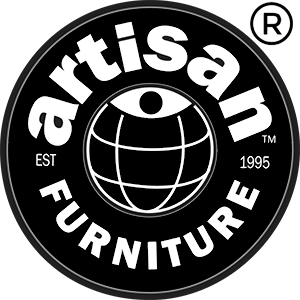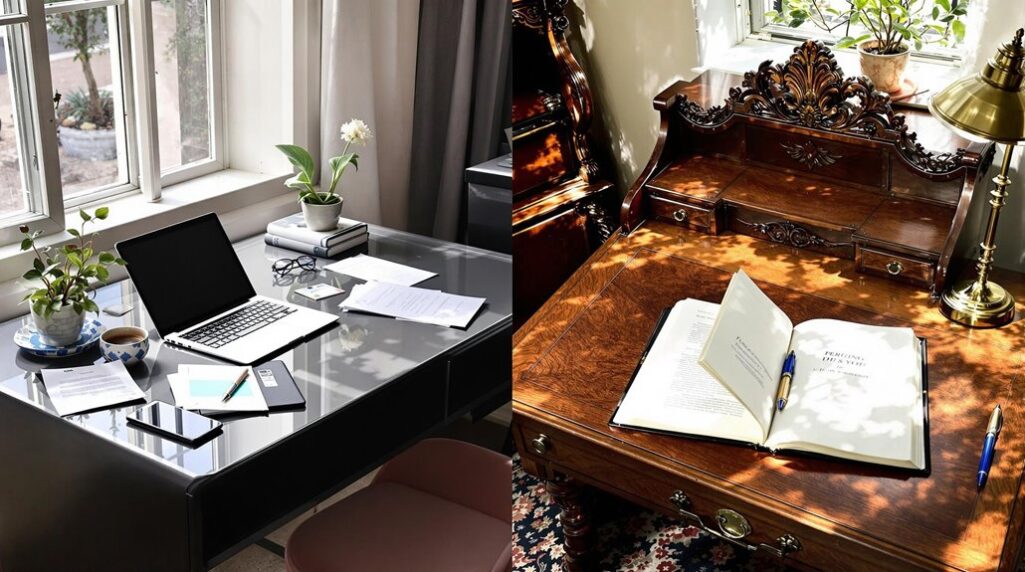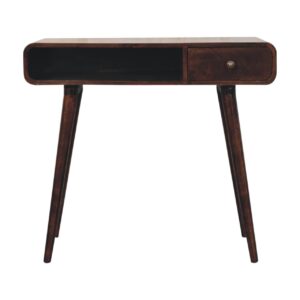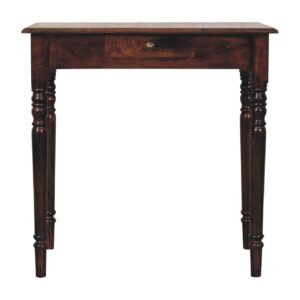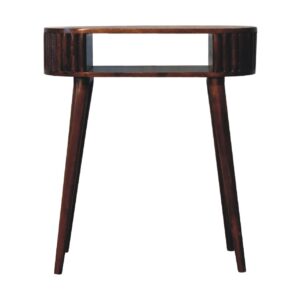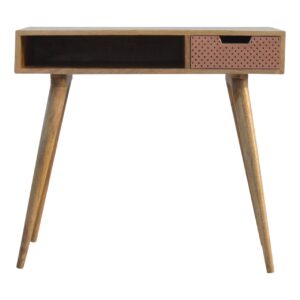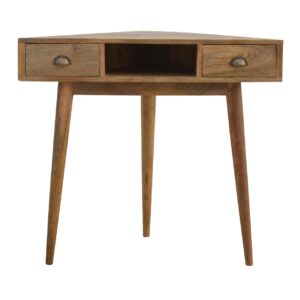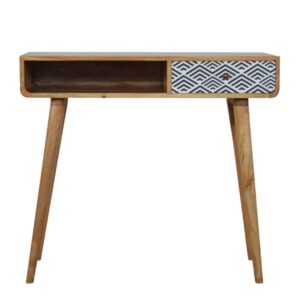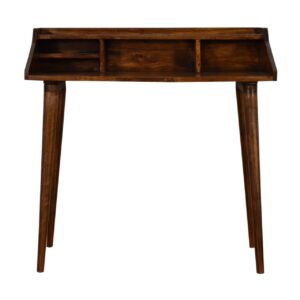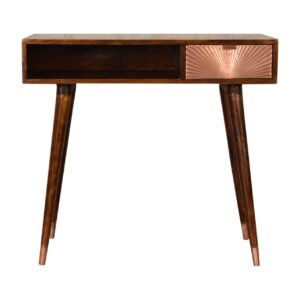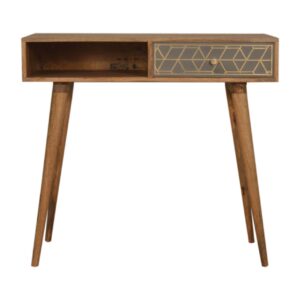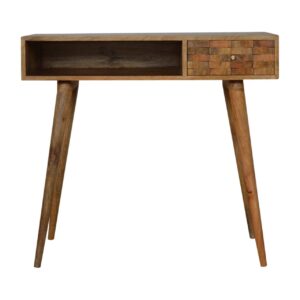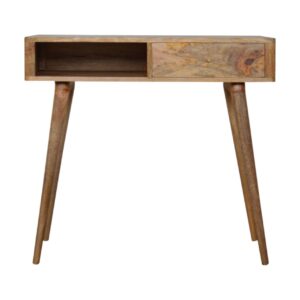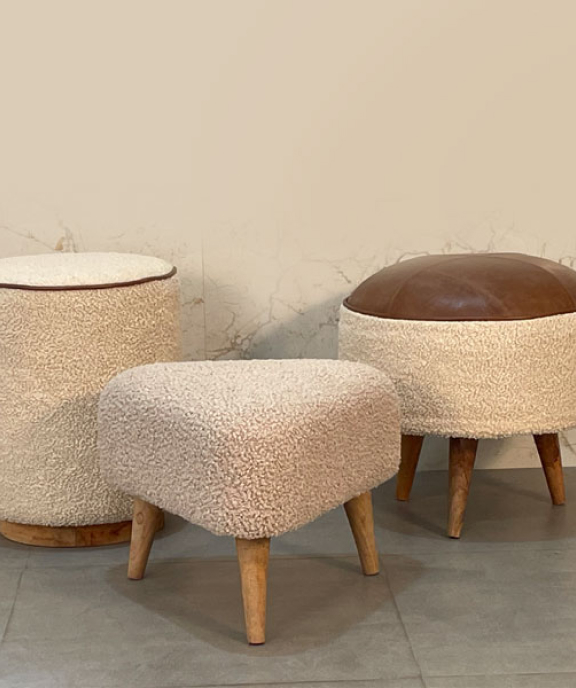A desk functions as a versatile workspace for various tasks, offering a flat surface and storage options, making it suitable for offices, homes, and schools. In contrast, a writing desk is specifically designed to enhance the writing experience, featuring an ergonomic height that supports good posture and a smooth surface for writing tools. Writing desks are often more compact, promoting an organized, clutter-free environment. While desks accommodate a range of activities, writing desks focus solely on writing tasks. Understanding these distinctions can help you choose the right type for your needs, ensuring maximum productivity in your workspace.
Definition of a Desk
A desk is more than just a piece of furniture; it's a dedicated space for productivity and organization. This essential piece serves various functions, from providing a surface for work to housing important items like papers, computers, and office supplies. You might find desks in homes, offices, and educational institutions, tailored to different tasks and styles. Generally, a desk is designed for various activities, such as studying, writing, or managing tasks. It typically features a flat surface with legs or a frame, allowing for comfortable use. Additionally, desks may include drawers or shelves for efficient storage. Understanding the definition of a desk sets the foundation for distinguishing it from more specialized types, like a writing desk.
Definition of a Writing Desk
Writing desks are specifically designed to enhance the writing experience, offering a dedicated space that fosters creativity and focus. Unlike general desks, writing desks prioritize functionality for writing tasks. They often feature a smooth, flat surface, allowing for comfortable writing with various tools, such as pens, pencils, or laptops. Additionally, these desks typically have an ergonomic height that supports good posture during long writing sessions. Some writing desks include built-in storage solutions, like drawers or shelves, to help organize supplies and reduce clutter. This organization can lead to improved concentration, making the writing process more efficient. Overall, a writing desk serves as a purposeful and inspiring environment tailored for writers and anyone engaged in extensive written communication.
Design Features Comparison
When comparing design features, it's essential to recognize that desks and writing desks serve different purposes, which influences their overall layout and functionality. A typical desk often includes a larger surface area, designed for various equipment, such as computers, printers, and paperwork. In contrast, a writing desk prioritizes a compact design, emphasizing an intimate workspace primarily for writing or reading.
Additionally, writing desks frequently feature open spaces or minimal storage, promoting a clutter-free environment conducive to focus. Meanwhile, desks may incorporate drawers or shelving for organization. The materials used can also differ; writing desks might be crafted from lighter woods or metals, while desks can utilize sturdier materials to support more equipment. These distinctions play a significant role in your workspace's efficiency and aesthetic.
Functional Differences
While both desks and writing desks provide workspaces, their functional differences cater to distinct needs. A general desk often serves multiple purposes, accommodating computers, office supplies, and various tasks, making it versatile for different work styles. In contrast, a writing desk typically focuses on providing a dedicated surface for writing and reading, often featuring a more streamlined design that emphasizes simplicity and comfort. You'll notice that writing desks may have fewer drawers or compartments, encouraging a less cluttered workspace. Additionally, the height and size of writing desks are often tailored for prolonged seating, promoting better posture during writing sessions. Ultimately, understanding these functional differences helps you select the right type of desk for your specific tasks and preferences.
Choosing the Right Option
Choosing the right desk option hinges on your specific needs and the tasks you plan to tackle. If you primarily write or engage in creative tasks, a writing desk may suit you better, providing a focused space with ample surface area for your materials. Conversely, if you need a multifunctional area for computer work, meetings, or storage, a standard desk could be more appropriate. Consider factors like size, style, and functionality; assess your workspace and how you'll use it daily. Additionally, think about your comfort and ergonomics, as a suitable desk height and layout can enhance productivity. Ultimately, aligning your choice with your workflow and personal preferences will lead to a more satisfying workspace experience.

